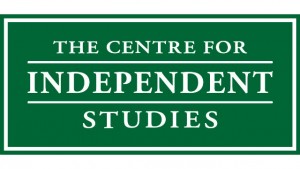Home » Commentary » Media Release » MEDIA RELEASE: Will super changes mean a cut in take-home pay?

 Australians could face a big cut in take-home pay if changes to the superannuation system are done badly, according to Michael Potter, economist at the Centre for Independent Studies.
Australians could face a big cut in take-home pay if changes to the superannuation system are done badly, according to Michael Potter, economist at the Centre for Independent Studies.
“All the debate about the taxation of super has ignored the crucial issue of who should pay the tax on super contributions,” Mr Potter said.
“If the tax is paid by employees as super fund members, then they will face a cut in their income after tax. All Australians making super contributions will be worse off.
“This is a bad idea that should be opposed by many taxpayers. Australian taxpayers are every year facing a tax increase by stealth due to bracket creep. They don’t need to be hit with an additional tax slug as a sly consequence of a change to superannuation,” Mr Potter said.
“This issue is raised by proposals to change the tax on concessional super contributions from the current flat 15% tax to a tax rate that is equal to the contributor’s marginal tax rate minus 20% (or another percentage). This is similar to the recommendation of the Henry Tax Review in 2010.
However, there are issues with the alternative option for who pays the tax, Mr Potter said.
“Another option is for the tax on contributions to be paid for by the super fund rather than the super fund member. But a super fund will need to know the marginal tax rate of their members — and that won’t be known for many months after the end of the financial year. Complex reconciliations will be required, and the administrative costs of super will go up yet again.
“These options are both fraught with difficulty. Either there will be a cut in take home pay for most working Australians, or a large increase in super fund administration costs. It isn’t clear that either option is worth doing.
“However, there is a solution to this issue: reduce the rate of the superannuation guarantee to around 8%: the net money going into super funds will remain about the same, and take home pay will actually go up for lower income Australians. This solution is worth exploring in more detail.
“In any case, caution is needed before rushing into changing the taxation of super.
“This is reinforced by the ill-informed contributions to date on the size of the super tax concessions. Some commentators argue that these concessions are enormously expensive, rivalling the cost of the Age Pension. But this is only when the worst possible measure is used. A better measure cuts the cost of the existing concession by around 70% (from $40.9 billion to $11.7 billion in 2015-16).
“But this is still an overestimate. It doesn’t count the lower cost to the Budget from fewer people relying on the full Age Pension. And it unreasonably assumes that people will save the same amount in super if the tax concession is abolished.
“So the true cost to the budget of the superannuation system is much smaller than many argue. This point was strongly made in a recent report by Deloitte Australia.
“In addition, any change should not be a revenue grab. The current total tax take is around historical averages and there is no need for it to increase – economic growth is currently sluggish and the last thing we need is an increase in the tax burden on the economy. So any changes to taxes on super should be broadly revenue neutral, unlike the proposals by some (including the Deloitte report published recently).”
“Furthermore, the main goal of the super system should be to reduce the pressure on the Age Pension. Tax changes shouldn’t be done unless they help reduce the long-term costs of the pension. For example, all the proposals will cut taxes for low income earners – but this group are less likely to save enough to cut their reliance on the pension. So detailed modelling of the total budget impact is needed.
“All these issues suggest careful work is needed on the tax options for super, in particular estimating the long-term impact of any option on the budget, and addressing the administrative complexity of any change.
“We shouldn’t just be making a change in a misguided attempt to cut ‘massive’ tax concessions that are in fact much smaller than argued,” Mr Potter concluded.
Michael Potter is a Research Fellow at the Centre for Independent Studies
Media Enquiries: Karla Pincott kpincott@cis.org.au 0407 716 752
MEDIA RELEASE: Will super changes mean a cut in take-home pay?